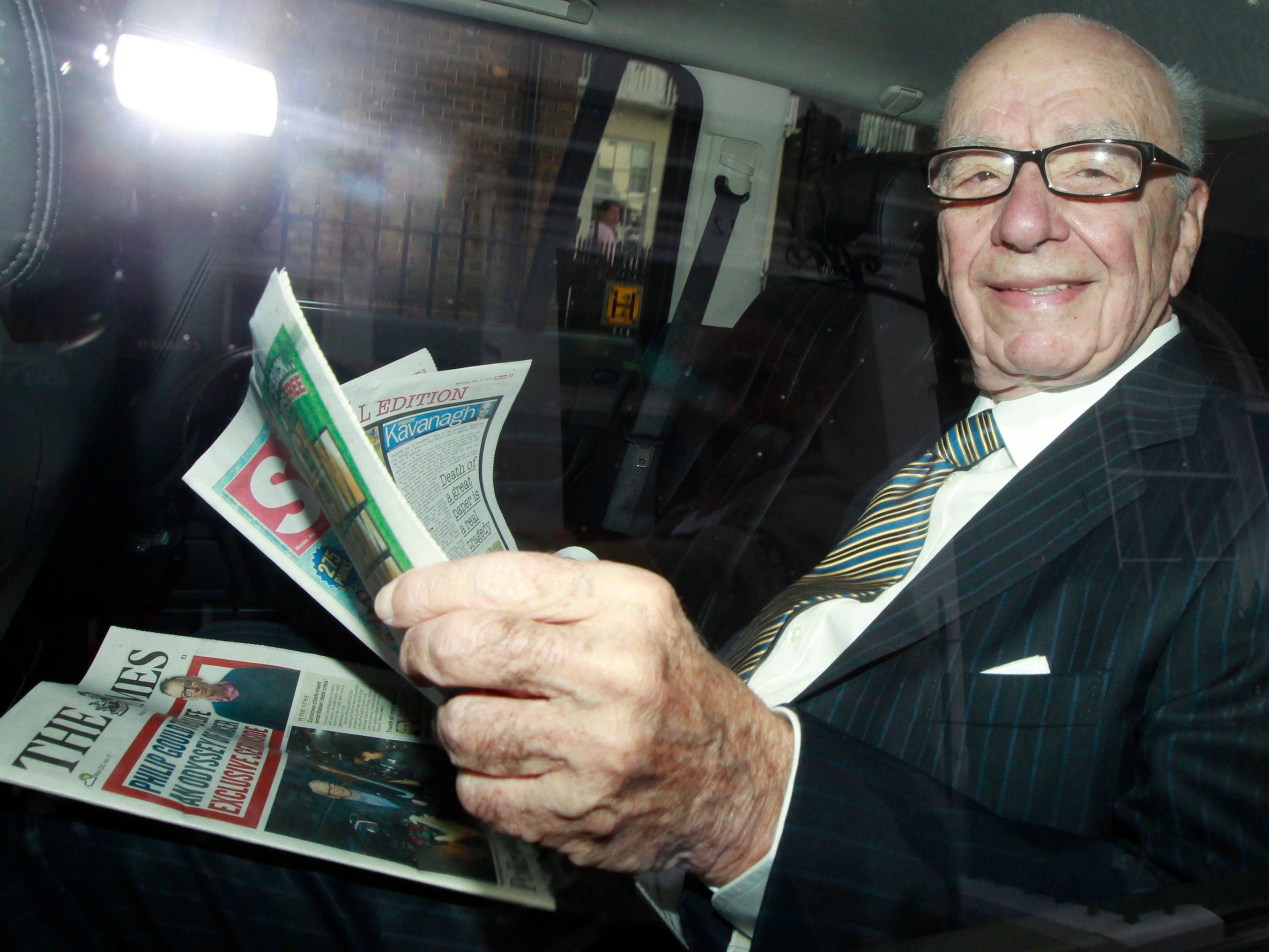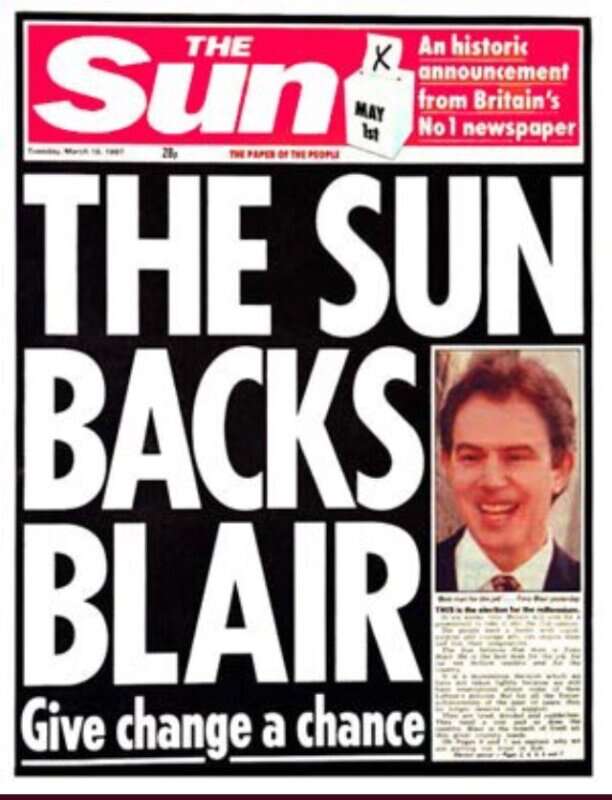
A new documentary on media mogul Rupert Murdoch has provided new insight on his “almost incestuous” relationship with Tony Blair.
It also shone a light on the Sun, Times and Fox News owner’s sometimes minute level of management that led to its shock backing for Tony Blair in 1997.
Former Sun deputy editor Neil Wallis was in charge during the 1997 election campaign when then-Sun editor Stuart Higgins was on holiday.
The paper made shockwaves when it published a “Sun backs Blair” front page after declaring “it was the Sun wot won it” for the Conservatives in the previous election.
Wallis told The Rise of the Murdoch Dynasty, the first episode of which aired on Tuesday night, that the first edition he edited had a “fairly standard” front page about the election.
“As soon as I set foot inside my office Mr Murdoch was on the phone and said hated your paper this morning, ‘you’ve got this all wrong, I’m coming down now’,” he said.
“Two or three minutes later my door opens, Rupert comes up and says ‘you’re getting this wrong. You’ve got this totally wrong. We are not just backing Tony Blair but we are going to back the Labour party and everything he does in this campaign 200%. You’ve got to get that right’.”

Wallis also effectively took credit for committing Labour to a referendum on the Euro during that election campaign.
He said he asked for a first-person piece from Blair on his party’s “cut and dried position” on Europe but it was “a piece of PR flim-flam that actually said nothing”.
“I said ‘I’m not running this Alistair [Campbell, Blair’s spin doctor] because it’s just saying nothing’. But I said ‘for this to be coherent, for this to have an impact, this needs to say you will not go into the Euro without a referendum’.
“And I duly got the piece under Tony Blair’s name committing them to a referendum on the Euro if it was ever considered that they would go into it.”
Former UK Independence Party leader Nigel Farage directly linked this Sun column with the eventual vote to leave the European Union 19 years later.
He told the documentary: “The price of Rupert Murdoch’s support for Tony Blair was that Blair promised he would not take us into the European currency without first having a referendum, and if Rupert Murdoch had not done that we would have joined the Euro in 1999 and I doubt Brexit would have happened.
“So I think when we look at the long history of Britain’s relationship with the European project that led ultimately to the Brexit vote, I think that was a decisive intervention from Rupert Murdoch.”
Revealingly, Farage also admitted he had asked Murdoch “if he wanted me to do this” documentary.
“If he’d said no I wouldn’t have done it, but he said yes do it and I think historically some of this stuff is really important.”
Asked if he believes Blair has Murdoch to thank for his 1997 victory, Wallis said: “I do really. What we did was to say to the British public this is who he is, this is what he can be. Three million newspapers a day is 10m adults reading something every day.”
But in a nod to the wider context of what was going on in Britain at that time, which was not explored in the documentary, Wallis said: “Don’t forget though, the country was ready for a change and that’s what Rupert spotted.”
Blair went on to become godfather to one of Murdoch’s children and former Sunday Times editor Andrew Neil said the relationship between the two after New Labour gained power was “almost incestuous”.
“The line between church and state, if I can put it [that way], between press and state, became so blurred that at one stage it was quite hard to tell which was which,” Neil, whose editorship ended in 1995, said.
He said it was not just Murdoch, but his editors and senior executives who were influential on Labour policy in that period.
David Yelland, editor of the Sun between 1998 and 2003, said: “I would go and see Tony Blair quite often and would have an hour or so private meeting in his office and what I got to realise when I was editing the Sun is that the words I used in leaders were often reflected in things that Downing Street said.”
On the events leading up to the Iraq war, Neil added: “Murdoch would call regularly, he would give him [Blair] the latest information he had gleaned from Washington and the White House. He in turn would find out what Mr Blair was about, will the Labour Party be solid?
“I think it’s now been established that in the week before the land war began the Prime Minister spoke to Rupert Murdoch almost as much as he spoke to his Foreign Secretary or his Defence Secretary. That’s influence.”
The documentary did not contain much of Murdoch’s own voice but he has in the past denied ever asking a prime minister for anything.
In a letter to the Guardian in 2016, he wrote: “On a number of occasions now your paper has quoted me as saying: ‘When I go into Downing Street, they do what I say; when I go to Brussels, they take no notice.’
“There is much fake news published about me, but let me make clear that I have never uttered those words. I have made it a principle all my life never to ask for anything from any prime minister.”
The Rise of the Murdoch Dynasty continues on BBC Two next Tuesday at 9pm.
Read Press Gazette’s 2005 interview with Rupert Murdoch
Picture: Newscorp/Taint/ Reuters/Luke Macgregor/Files
Email pged@pressgazette.co.uk to point out mistakes, provide story tips or send in a letter for publication on our "Letters Page" blog
